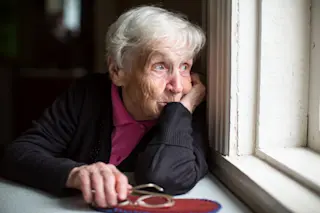A heavy feeling on the chest. A throat that’s leaden, as if to physically push down emotions as they bubble up. An unrelenting and overwhelming feeling of isolation. Loneliness hurts — and over time, it can put the body into a vicious inflammatory state that increases our risk of everything from heart attack and stroke to diabetes and cancer. So, evolutionarily speaking, why do we experience it?
Stephanie Cacioppo, an assistant professor of psychiatry and behavioral neuroscience at the University of Chicago Pritzker School of Medicine, says that countless studies have helped researchers formulate a holistic purpose for loneliness. “Our social structures evolved hand in hand with neural, hormonal and genetic mechanisms to support these social structures [couples, tribes and communities] that help us survive and reproduce,” says Cacioppo.
Because while loneliness may be painful to experience today, for our prehistoric ancestors it would’ve been a far better alternative to ...















